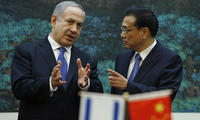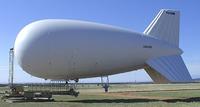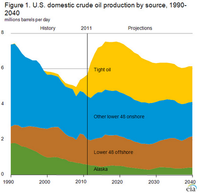-
List of most-at-risk L.A. buildings to be released
Scientists have compiled a list of concrete buildings in Los Angeles which could be at risk of collapsing in a major earthquake. The list identifies about 1,500 concrete structures built before 1980 which need further study to determine their risk level. Structural engineers insist that hundreds could die if any of the buildings collapsed.
-
-
Compass-EOS closes $42 million funding round
Compass-EOS closes $42 million round. The company’s icPhotonics technology aims to disrupt the routing industry with efficient routers using novel optical backplane.
-
-
Research funding and reward structure contributes to formation “science bubbles”
Fashions in research funding, reward structures in universities, and streamlining of scientific agendas undermine traditional academic norms and may result in science bubbles. New research shows how the mechanisms that set off the financial crisis might be replicating in the field of science. The prevailing scientific reward structure thus amplifies social phenomena like “pluralistic ignorance” and “lemming effects,” which have been shown to have significant impact on information processing and assessment in populations of interacting persons — including in one of the most rational enterprises of modern social life.
-
-
Israel withdraws from U.S. terror case to placate China

The Israeli government has prohibited a former security official from testifying in an anti-terrorism case in the United States. The case involves families of victims of Palestinian suicide bombers who claim the Bank of China facilitated transfers of funds used to carry out the suicide attacks, and other attacks which are not part of the case. The Israeli government initially pushed for the official’s testimony because it would have shed light on the services the Bank of China offered Hamas and Islamic Jihad – but now says it would not allow him to testify for fear the testimony would reveal methods and sources.Critics of Netanyahu’s U-turn on the issue of fighting terrorism, an issue which has been central to his political career, say that preventing the official from testifying has nothing to do with intelligence information. Rather, it has to do with Israel’s growing economic and security relations with China.
-
-
Government, private sector prioritize cybersecurity education
As government and private sector organizations transmit and store more information electronically, the need for professionals with skills to protect and evaluate sensitive information is increasing. American companies and government agencies are expanding various initiatives aimed at increasing the number of cybersecurity professionals in the country.
-
-
U.S. defense industry pushes for immigration reform
CEO Linda Hudson of BAE Systemsis making a plea for immigration reform as she links the defense industry’s urgent need for skilled engineers to the push for the United States to develop a simpler path to citizenship for skilled and educated immigrants. She also says that “if we’re forced to forgo international talent we damn well ought to be doing something to produce that talent domestically.”
-
-
Financial decision making, risk taking in the face of changing climate
Maximizing returns on financial investments depends on accurately understanding and effectively accounting for weather and climate risks, according to a new study by the American Meteorological Society. An AMS report concludes that financial investments face a range of risks due to existing weather patterns and climate variability and climate change. Even small changes in weather can impact operations in critical economic sectors. At the same time, climate variability and change can either exacerbate existing risks or cause new sources of risk to emerge.
-
-
TCOM’s aerostat systems help U.S. Border Patrol

Several TCOM aerostat systems are being evaluated by Border Patrol agents in operational environments along U.S.-Mexico border. TCOM’s aerostat systems enable operators to view activity along the border. The system can typically remain aloft for two weeks to one month at a time. With operational altitudes of up to 5,000ft, the aerostats provide monitoring of thousands of square miles.
-
-
U.S. financial industry pushes Congress to pass cybersecurity bill
Three financial-industry trade groups have issued a letter to senior members of the Senate Select Committee on Intelligenceto re-energize a campaign for moving forward with cybersecurity legislation. The trade groups, representing the U.S. largest financial institutions, said their ability to prevent cyberattacks will be hindered unless Congress acts.
-
-
Security agencies concerned about plastic guns
The Undetectable firearms Act of 1988, which makes it illegal to manufacture, import, sell, ship, deliver, process, transfer, or receive a firearm which is not detectable by walk-through metal detection, is set to expire on 9 December 2013. If Congress fails to reauthorize the law, plastic guns will no longer require metal components which are detectable by metal detectors. “When these 3D firearms are manufactured, some of the weapons can defeat normal detection such as metal detectors, wands, and it could present a problem to public safety in a venue such as an airport, an arena, a courthouse,” says ATF assistant director Richard Marianos.
-
-
Global disaster recovery as a service: market trends 2014-18
Reportstack has announced a new market report on Global Disaster Recovery-as-a-Service Market 2014-2018, which forecasts that the market is expected to grow at a CAGR of 54.64 percent over the period 2014-2018.
-
-
Inkblots bolster security of online passwords
Computer scientists have developed a new password system that incorporates inkblots to provide an extra measure of protection when, as so often occurs, lists of passwords get stolen from websites. This new type of password, dubbed a GOTCHA (Generating panOptic Turing Tests to Tell Computers and Humans Apart), could foil growing problem of automated brute force attacks, and would be suitable for protecting high-value accounts, such as bank accounts, medical records, and other sensitive information.
-
-
U.S. oil production exceeds imports for first time in two decades

The United States is well on its way to energy independence, with the Obama administration announcing Wednesday that domestic oil production surpassed imports for the first time in nearly two decades. A report by the U.S. Energy Information Administration (EIA) offers proof that the United States has managed both to increase domestic oil and gas drilling and reduce the nation’s carbon emissions, which have dropped to a 20-year low. Since 2008, U.S. crude oil output has increased 50 percent, while imports have fallen about 20 percent.
-
-
Ohio lawmakers want to limit use of drones by law enforcement
State lawmakers in Ohio want to limit the use of drones by law enforcement agencies in the state.A proposed bill would require law enforcement to obtain a search warrant before using drones. It would prohibit law enforcement from using drones to search for missing persons, locate illegal marijuana operations, or perform several actions officers currently handle with helicopter surveillance.
-
-
Passwordbox raises $6 million in Series A funding
PasswordBox emerged last June with a downloaded computer and mobile app which creates, saves, and manages every password a user has while keeping them safe with AES 256-bit encryption. The $6 million — raised in sixty days, closing in August – will go toward the imminent acquisition of a small company. PasswordBox declined to discuss which company or in what space the target operates.
-
More headlines
The long view
Ransomware Attacks: Death Threats, Endangered Patients and Millions of Dollars in Damages
A ransomware attack on Change Healthcare, a company that processes 15 billion health care transactions annually and deals with 1 in 3 patient records in the United States, is continuing to cause massive disruptions nearly three weeks later. The incident, which started on February 21, has been called the “most significant cyberattack on the U.S. health care system” by the American Hospital Association. It is just the latest example of an increasing trend.
Chinese Government Hackers Targeted Critics of China, U.S. Businesses and Politicians
An indictment was unsealed Monday charging seven nationals of the People’s Republic of China (PRC) with conspiracy to commit computer intrusions and conspiracy to commit wire fraud for their involvement in a PRC-based hacking group that spent approximately 14 years targeting U.S. and foreign critics, businesses, and political officials in furtherance of the PRC’s economic espionage and foreign intelligence objectives.
European Arms Imports Nearly Double, U.S. and French Exports Rise, and Russian Exports Fall Sharply
States in Europe almost doubled their imports of major arms (+94 per cent) between 2014–18 and 2019–23. The United States increased its arms exports by 17 per cent between 2014–18 and 2019–23, while Russia’s arms exports halved. Russia was for the first time the third largest arms exporter, falling just behind France.
LNG Exports Have Had No Impact on Domestic Energy Costs: Analysis
U.S. liquified natural gas (LNG) exports have not had any sustained and significant direct impact on U.S. natural gas prices and have, in fact, spurred production and productivity gains, which contribute to downward pressure on domestic prices.
